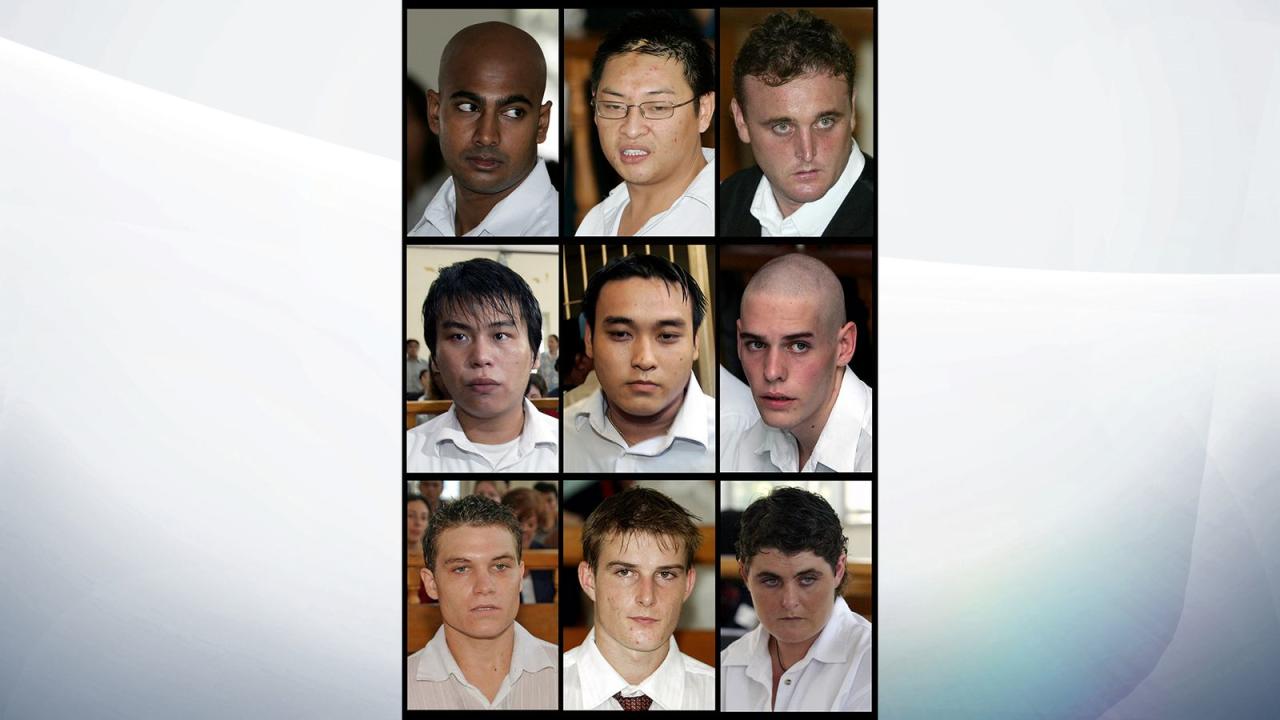The Bali Nine case, a dark chapter in Australia-Indonesia relations, is once again under the spotlight. The potential return of the convicted drug smugglers to Australia has reignited a fierce debate, pitting compassion against justice, and stirring up a maelstrom of public opinion and political maneuvering. Years after their arrest and sentencing, the question remains: should these individuals, who faced the death penalty, be allowed back on Australian soil?
This complex issue involves navigating intricate legal frameworks, grappling with ethical dilemmas, and considering the long-term impact on the relationship between Australia and Indonesia. The case throws into sharp relief the conflicting desires for rehabilitation, justice for victims, and the maintenance of strong diplomatic ties. The media’s role in shaping public perception and the political pressures on both governments further complicate the situation, making a simple resolution elusive.
The Role of Government and Politics

The Bali Nine case has been a complex and sensitive issue, deeply intertwined with the political relations between Australia and Indonesia. The handling of the case, from arrests to potential repatriation, has been heavily influenced by domestic political pressures in both countries and the broader diplomatic context of their relationship. Understanding the roles played by various government officials and the political considerations involved is crucial to comprehending the case’s trajectory.The official positions of both governments have evolved over time.
Initially, the Indonesian government, upholding its strict anti-drug laws, maintained a firm stance against leniency. Australia, while respecting Indonesian sovereignty and judicial processes, consistently advocated for the humane treatment of its citizens and explored all avenues for support, including consular assistance. However, public opinion in both countries significantly shaped the governments’ responses. Australian public sentiment, while sympathetic to the convicts’ plight, also expressed a degree of frustration with the perceived leniency towards drug traffickers.
Similarly, Indonesian public opinion generally favored strong punishment for drug-related crimes.
Government Statements and Positions
Australia consistently stressed its respect for Indonesian law while simultaneously emphasizing the need for consular access and humane treatment for the Bali Nine. Official statements reiterated Australia’s commitment to working within the Indonesian legal framework, while also highlighting the ongoing support provided to the convicts and their families. The Indonesian government, through various official channels, repeatedly affirmed its commitment to upholding its drug laws and emphasized the severity of the crimes committed.
Statements consistently rejected any suggestion of interference in their judicial processes.
Political Pressures and Considerations
The case became a significant political issue in both countries. In Australia, the government faced pressure from both sides of the political spectrum. Some advocated for stronger diplomatic efforts to secure a more lenient sentence or early release, while others emphasized the importance of upholding the rule of law and respecting Indonesia’s sovereignty. Similarly, in Indonesia, the government faced pressure to maintain a tough stance on drug trafficking to appease public opinion and demonstrate its commitment to combating the drug trade.
The case also tested the already complex relationship between the two nations, requiring careful diplomatic navigation to avoid any significant strain.
Key Political Figures and Their Roles
Several key political figures played significant roles in the case. Australian Prime Ministers and Foreign Ministers engaged in diplomatic discussions with their Indonesian counterparts. The Indonesian Attorney General and other senior officials within the Indonesian justice system were central to the legal processes and decisions relating to the convicts. The involvement of these high-profile figures underscores the high-stakes nature of the case and its implications for bilateral relations.
Political Influence on Case Outcome
The political context undoubtedly influenced the outcome of the case. While the Indonesian judicial system operated independently, the political climate shaped public discourse and influenced the government’s overall approach. The Australian government’s diplomatic efforts, though constrained by respect for Indonesian sovereignty, likely played a role in ensuring consular access and humane treatment for the convicts. Conversely, Indonesian public opinion, favoring harsh penalties for drug offenders, likely influenced the judicial decisions and the government’s reluctance to grant clemency.
The case highlights the intricate interplay between legal processes and political realities in international affairs.
The Bali Nine’s potential return to Australia is far from a simple matter of repatriation; it’s a multifaceted issue with profound legal, ethical, and political implications. The debate highlights the complexities of international justice, the challenges of rehabilitation, and the delicate balance required in maintaining strong diplomatic relationships. While the legal processes and government decisions will ultimately determine their fate, the enduring legacy of this case will undoubtedly continue to shape discussions about drug trafficking, international cooperation, and the pursuit of justice.
The Bali Nine’s potential return to Australia sparks heated debate, a stark contrast to the unifying joy surrounding another kind of victory. For a moment, consider the incredible athleticism displayed in the Tennessee Volunteers historic win and team performance breakdown ; a testament to dedication and teamwork. Returning to the complexities of the Bali Nine case, the discussions highlight the enduring weight of past actions and the ongoing struggle for justice.
The Bali Nine’s potential return to Australia sparks intense debate; opinions are sharply divided, fueled by varying perspectives on justice and rehabilitation. Meanwhile, for a brief escape from the gravity of the situation, check the Milan Juventus match live stream TV schedule to catch the game. Returning to the core issue, the complexities surrounding their repatriation remain a significant point of contention in Australian society.
